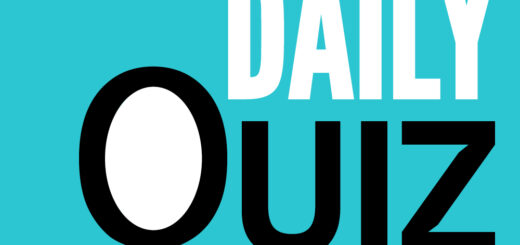Daily Current Affair Quiz: 20th Feb 2020
1. Which of the following statements are true?
1. Delimitation commissions’ orders are enforced as per the date specified by the President of India.
2. Copies of these orders are laid before the Lok Sabha or the concerned Legislative Assembly. No modifications are permitted.
(a) 1 only
(b) 2 only
(c) Both 1 and 2
(d) Neither 1 nor 2
Ans: c
Justification:
- Delimitation is undertaken by a highly powerful commission. They are formally known as Delimitation Commission or Boundary Commission.
- These bodies are so powerful that its orders have the force of law and they cannot be challenged before any court.
- Such commissions have been constituted at least four times in India — in 1952 under the Delimitation Commission Act, 1952; in 1963 under Delimitation Commission Act, 1962; in 1973 under Delimitation Act, 1972 and last in 2002 under Delimitation Act, 2002.
- The commissions’ orders are enforced as per the date specified by the President of India. Copies of these orders are laid before the Lok Sabha or the concerned Legislative Assembly. No modifications are permitted.
2. Kala Kumbh was organized by
(a) Ministry of Agriculture
(b) Ministry of Textiles
(c) Ministry of Minority Affairs
(d) Ministry of Culture
Ans: b
Justification:
- With an objective to promote Geographical Indication (GI) crafts and heritage of India, the Ministry of Textiles is organizing Kala Kumbh – Handicrafts Thematic Exhibition in various parts of the country through the Office of Development Commissioner (Handicrafts).
3. Which of the following statements are true
1. ERONET is a common database for all States and UTs with data of 91 crore electors.
2. It provides bedrock of electoral roll in providing various web services to Conduct of Elections applications of Election Commission of India.
(a) 1 only
(b) 2 only
(c) Both 1 and 2
(d) Neither 1 nor 2
Ans: c
Justification:
- ERONET is a common database for all States and UTs with data of 91 crore electors.
- It provides bedrock of electoral roll in providing various web services to Conduct of Elections applications of Election Commission of India.
- It automates the process of electoral roll management starting from elector registration, field verification of electors, decision support system for Electoral registration officers and for providing extensive integrated value-added services.
4. Which of the following statement/s is/are true.
1.Adjusted Gross Revenue (AGR) is the usage and licensing fee that telecom operators are charged by the Department of Telecommunications (DoT).
2. It is divided into spectrum usage charges and licensing fees.
(a) 1 only
(b) 2 only
(c) Both 1 and 2
(d) Neither 1 nor 2
Ans: c
Justification:
- Adjusted Gross Revenue (AGR) is the usage and licensing fee that telecom operators are charged by the Department of Telecommunications (DoT). It is divided into spectrum usage charges and licensing fees, pegged between 3-5 percent and 8 percent respectively.
How is it calculated and what’s the contention?
- As per DoT, the charges are calculated based on all revenues earned by a telco – including non-telecom related sources such as deposit interests and asset sales. Telcos, on their part, insist that AGR should comprise only the revenues generated from telecom services.
5. The System of Air Quality and Weather Forecasting And Research (SAFAR) is a national initiative introduced by
(a) Ministry of Earth Sciences
(b) Ministry of Environment, Forest and Climate Change
(c) Ministry of Science and Technology
(d) None of the above
Ans: a
Justification:
- The System of Air Quality and Weather Forecasting And Research (SAFAR) is a national initiative introduced by the Ministry of Earth Sciences (MoES) to measure the air quality of a metropolitan city, by measuring the overall pollution level and the location-specific air quality of the city.
- The system is indigenously developed by the Indian Institute of Tropical Meteorology (IITM), Pune and is operationalized by the India Meteorological Department (IMD).












